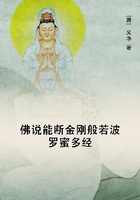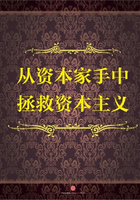IN REGARD to the Roman king, whose priestly functions were inherited by his successor the king of the Sacred Rites, the foregoing discussion has led us to the following conclusions. He represented and indeed personated Jupiter, the great god of the sky, the thunder, and the oak, and in that character made rain, thunder, and lightning for the good of his subjects, like many more kings of the weather in other parts of the world. Further, he not only mimicked the oak-god by wearing an oak wreath and other insignia of divinity, but he was married to an oak-nymph Egeria, who appears to have been merely a local form of Diana in her character of a goddess of woods, of waters, and of child-birth. All these conclusions, which we have reached mainly by a consideration of the Roman evidence, may with great probability be applied to the other Latin communities. They too probably had of old their divine or priestly kings, who transmitted their religious functions, without their civil powers, to their successors the Kings of the Sacred Rites.
But we have still to ask, What was the rule of succession to the kingdom among the old Latin tribes? According to tradition, there were in all eight kings of Rome, and with regard to the five last of them, at all events, we can hardly doubt that they actually sat on the throne, and that the traditional history of their reigns is, in its main outlines, correct. Now it is very remarkable that though the first king of Rome, Romulus, is said to have been descended from the royal house of Alba, in which the kingship is represented as hereditary in the male line, not one of the Roman kings was immediately succeeded by his son on the throne. Yet several left sons or grandsons behind them. On the other hand, one of them was descended from a former king through his mother, not through his father, and three of the kings, namely Tatius, the elder Tarquin, and Servius Tullius, were succeeded by their sons-in-law, who were all either foreigners or of foreign descent. This suggests that the right to the kingship was transmitted in the female line, and was actually exercised by foreigners who married the royal princesses. To put it in technical language, the succession to the kingship at Rome and probably in Latium generally would seem to have been determined by certain rules which have moulded early society in many parts of the world, namely exogamy, beena marriage, and female kinship or mother-kin. Exogamy is the rule which obliges a man to marry a woman of a different clan from his own: beena marriage is the rule that he must leave the home of his birth and live with his wife's people; and female kinship or mother-kin is the system of tracing relationship and transmitting the family name through women instead of through men. If these principles regulated descent of the kingship among the ancient Latins, the state of things in this respect would be somewhat as follows. The political and religious centre of each community would be the perpetual fire on the king's hearth tended by Vestal Virgins of the royal clan. The king would be a man of another clan, perhaps of another town or even of another race, who had married a daughter of his predecessor and received the kingdom with her. The children whom he had by her would inherit their mother's name, not his; the daughters would remain at home; the sons, when they grew up, would go away into the world, marry, and settle in their wives' country, whether as kings or commoners. Of the daughters who stayed at home, some or all would be dedicated as Vestal Virgins for a longer or shorter time to the service of the fire on the hearth, and one of them would in time become the consort of her father's successor.
This hypothesis has the advantage of explaining in a simple and natural way some obscure features in the traditional history of the Latin kingship.
Thus the legends which tell how Latin kings were born of virgin mothers and divine fathers become at least more intelligible. For, stripped of their fabulous element, tales of this sort mean no more than that a woman has been gotten with child by a man unknown; and this uncertainty as to fatherhood is more easily compatible with a system of kinship which ignores paternity than with one which makes it all-important. If at the birth of the Latin kings their fathers were really unknown, the fact points either to a general looseness of life in the royal family or to a special relaxation of moral rules on certain occasions, when men and women reverted for a season to the licence of an earlier age. Such Saturnalias are not uncommon at some stages of social evolution. In our own country traces of them long survived in the practices of May Day and Whitsuntide, if not of Christmas. Children born of more or less promiscuous intercourse which characterises festivals of this kind would naturally be fathered on the god to whom the particular festival was dedicated.















